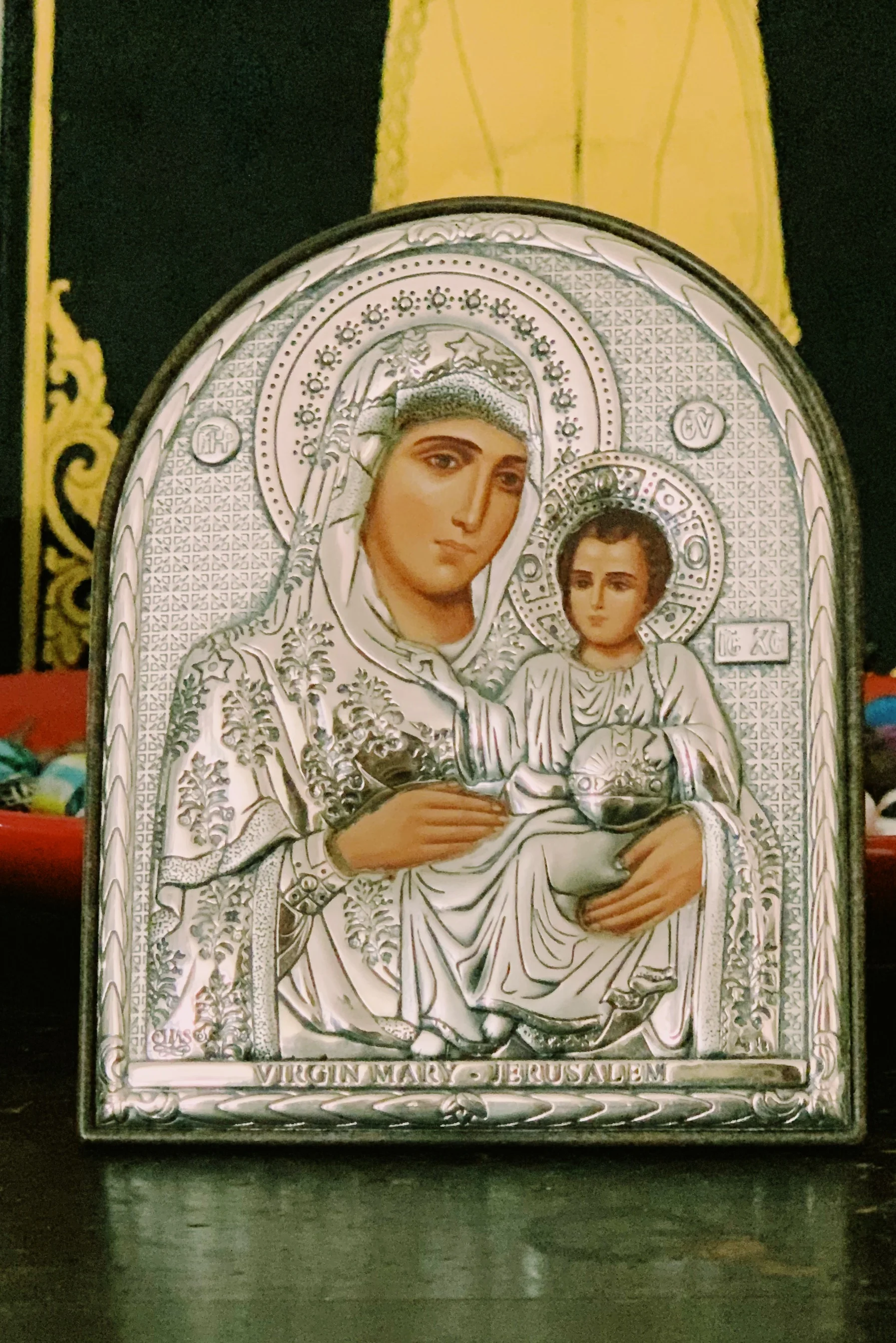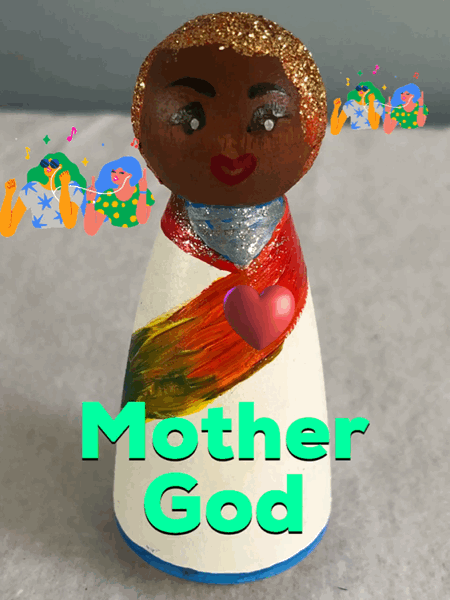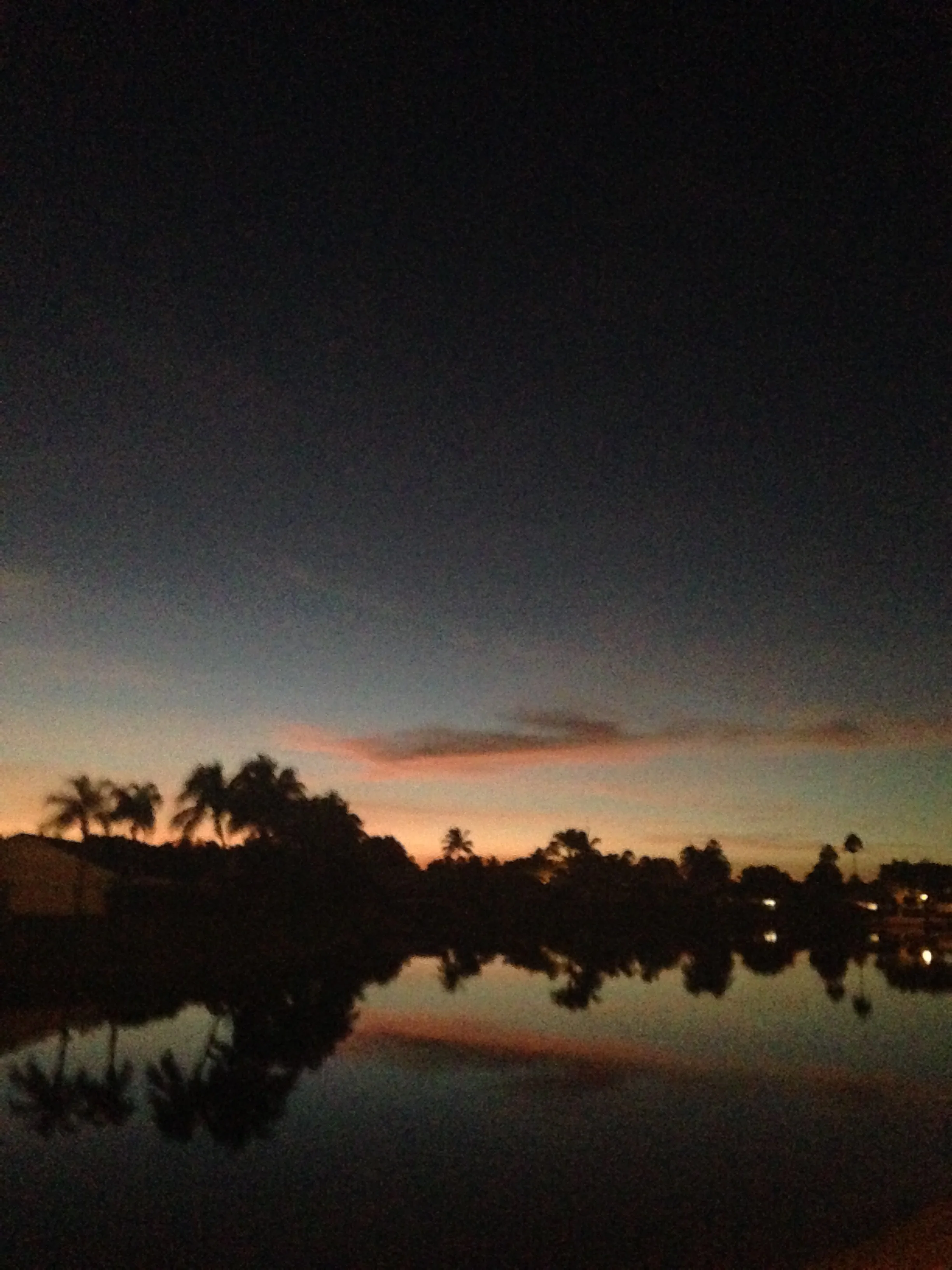By Any Means Necessary
“But it’s not fair Mommy…”
My 5-year-old’s tears are big and real and streaming down her sweet cheeks. “Daddy got a bigger scoop of ice cream than I did. I want the same amount that he has!” She raises her tiny fist and slams it down at her side, and then she grits her teeth and snarls in a moment of complete frustration.
My mind flashes quickly to logical arguments including that Daddy is 6’3” with the metabolism of race car, and he’s been cut back to one serving of ice cream per day due to the pandemic, and that ice cream is hard to get delivered these days. But looking at her tears, I see how real her pain is. I see the deep innate need for fairness, and how her young age means she’s not yet normalized the ways the world is unfair to those who are smaller, weaker, or disenfranchised due to race, creed, religion, gender, or sexual identity. I see her fierceness for justice—even ice cream justice—and I don’t want to quell that light within her.
I take her face in my hand and she leans into it. “You’re right! Let’s get you some more ice cream.”
All of us possess this sense of fairness—it’s one of our many beautiful birthrights. And we must often be willing to fight for what seems fair for ourselves and for our beloveds. We speak up to the boss, we fight it out with our partner, we tell our truth to our friends in the hopes that they will meet us where we are. And when these don’t work? We break-up with partners, friends, fitness centers, hair stylists, jobs, and even, sometimes, our families.
Have you ever been through a break-up? It’s typically not pretty. That word “break” is in there for a reason. I’ve been through break-ups where I never spoke to the other person again (or at least vowed not to!), where I begged the other person to reconsider, where I told the other person off in no uncertain terms, and where—once, sadly—I considered taking my own life because the pain was so overwhelming and crushing.
Right now, Black humans around the world are demanding that we collectively break up with white supremacy. They are demanding that white people—the beneficiaries of white supremacy--examine and root-out all of the places in us where we deny their full humanity. To call them “thugs” or demand that they only do this peacefully or to question angry impassioned—and yes, even looting--protests is to deny their rightful human rage at being treated as less than animals due to white supremacy and its by-product of systemic oppression for generations.
Do we have to listen to someone who is a thug or a criminal in our eyes? By asserting this lens of how to see protesters we immediately see that we are justified in not hearing their cries to not be murdered—MURDERED—while being a human whether they are sitting in their car, smoking a cigarette, working, walking through a store, going for jog, bird-watching, or sleeping in their bed at night.
I can remember when Sandra Bland died. I watched the video of the cop pointing the taser at her because she didn’t put out her cigarette or turn off her phone that was recording him. I saw her speak up for herself for being pulled over for not signaling in a lane-change—something that cost her life.
Her life.
Her life was not worth a lane change. I saw all of that unfold, and I thought, “This would never have happened to me because I’m white.”
Because it would not have. I probably would not have even been pulled over. If I spoke rudely to the cop, I might have gotten a ticket. Maybe.
I have no room for the white privilege/white supremacy dog whistles that let everyone know that we don’t have to consider the protestors because they are not even human—they’re just thugs or looters or not protesting peacefully, i.e. “white appropriate ways.”
No. They are human.
And a Black human using the dog whistles doesn’t make it right. It just means that they too have assimilated racism into their hearts. We all have.
What would you do to advocate for yourself? What bridge would you cross to be given what you felt was just plain fair? If you and your beloveds had the police called and told you were trying to threaten (read: kill) an innocent woman while you were birdwatching, would you be screaming as loud as possible? If you and your beloveds were terrified to ever see a police officer for fear of dying, would you take that lying down? If you and your beloveds couldn’t swim, go to the lake, go out to dinner, go for a run, shop at the store, play a game, or have your children play with a toy gun without fear that you would be stalked, harassed, or murdered, would you accept it?
What would you burn down to make others grasp your humanity?
And that’s the pain and the crux of the problem: Black people know they are human. They are not who must change for their full humanity to be systemic to our shared human journey—it’s on the rest of us. It’s on white people.
As the activist Sonya Renee Taylor rightly—angrily—points out, “What is wrong with white people that it is even a conversation to discuss Black people’s humanity? The conversation itself is racist.” (1)
I’m a very spiritual person. It’s my DNA. It’s my call. It’s my life. It’s my work. But my spirituality has no meaning—no real teeth to it—if it lacks justice. To believe in the equality of all humans is not enough. I must put feet to my beliefs. I want you to look at my life and say, “I see you living what you say you believe.” Not to win God or the Universe or Spirit’s favor. Not to win your approval. No. I want you to see that in me because I demand integrity within myself. To me, integrity is when who we say we are is in alignment with what we do. My soul’s deepest beliefs have no meaning without my doing the hard work of putting them into practice.
So, friend, sit still. Name all your doctors who are Black. Name your Black lawyers. Name your Black accountants. Name your Black spiritual leaders. Name your Black confidantes that you trust your life to and your money to. Who Black has the keys to your life?
Don’t tell me you have a Black friend who doesn’t think you’re a racist. Tell me how you made sure your Black colleague got the promotion. Tell me how you declined the offer of a leadership position and advocated for someone Black to be the leader instead. Tell me how you spoke up at dinner with family, heard something racist, and said, “You may not speak of my Black siblings like that now or ever. I want to invite you to examine your racism.” Show me you’re willing to have uncomfortable conversations and risk relationships.
Don’t tell me how you loved the movie “The Help” that centered the white women’s stories over the stories of the Black women who raised them and nurtured them. Tell me how you are committed to reading uncomfortable Black truths and the pain you feel at the truth of your own culpability. I know I have! Tell me about how your Instagram feed or Google’s targeted ads think you are Black because you follow so many Black voices. Tell me about how you take a knee on any given Sunday. Tell me about how you squirm when a TV show keeps putting the Black person as the disposable friend and not the main character. Tell me how you walk into a store, restaurant, or bar and look for the Black folks and keep checking on them every few minutes to make sure they are okay. Tell me how you look up and smile when a Black man jogs by you. Tell me how you keep immersing yourself in the lived truths of those who are Black, indigenous, brown, LGBTQIA…different than you.
Show me that you are anti-racist by spending your privileges to help those who don’t have it in the forms you do. (2)
Because until then, I won’t tell my Black daughter to not fight—even for the same portion of ice cream her Daddy got. To do anything else would be to deny that she will have to be brave and fight for her human rights by any means necessary.
Notes:
1 Sonya Renee Taylor can be found on her website, @sonyareneetaylor, and you can buy her books here.
2 Still confused about your privilege: watch this and this and this.
Other resources/cool folks to follow—because we cannot ask our BIPOC (Black, Indigenous, Person of Color) siblings to do our work for us. No. It is literally white privilege to ask them. And, quite frankly, I’ve not given an exhaustive list here. Part of rejecting our privilege is that we must do the work of looking for the resources and educating ourselves. What I have given are voices that I listen to and enjoy and am challenged by. I have given a mostly female or non-binary list, because our issues are not just binary of Black and white or male or female, but intersectional where race, creed, gender, CLASS, education, sexual identity, gender identity, disability, and body-type meet.
· If you are a Christian, look to following on Instagram: @revjacquilewis @middlechurch @revdrbarber @austinchanning and then look at who they follow to find more. I’m going to do a bigger post on Womanist and Black Liberation Theologians, but the works of the late Rev. Dr. James H. Cone, The Rev. Cannon Kelly Brown Douglas, The Rev. Dr. Renita J. Weems, the late Rev. Dr. Kaite Cannon, Dr. Stacey M. Floyd-Thomas, and The Rev. Dr. Jacquelyn Grant are good places to start.
· If you are Jewish, here are some resources from the Religious Action Center of Reformed Judaism, and this is a good list too.
· If you love spirituality, tarot, and astrologers, you can find these lovely voices on Instagram: @tatiannatarot @jaealissa @thehoodwitch @beyondyoursunsign @so_above @jessica_lanyadoo
· And you should just follow these people on Instagram because they are the epitome of awesome: @mspackyetti @janetmock @fly_sci @robincostelewis @leemerrittesq @opalayo @thedailyshow @indyamoore @nalasimonet @osopepatrisse @jamiaawilson @crutches_and_spice @elainewelteroth @becauseofthem @ihartericka
· If you love to read: the poets - @nayyirah.waheed Ross Gay Tracy K. Smith non-fiction - Roxanne Gay bell hooks Ta-Nehisi Coates fiction - Brit Bennet Kiley Reid Jacqueline Woodson (who basically writes every genre—a favorite book of my daughter’s is by her)
· If you are a parent, this list has resources for you at the end.
· A good booklist from NPR.
· A booklist that started with Ibram X. Kendi, who wrote the book How to Be an Antiracist.
· If you’re into interior design start here and here.
· If you’re into make-up, here’s a list of Black owned brands and if you’re not using @fenty I just can’t. It’s one of the best brands around, period. Plus, there are tons of Black owned hair brands that are amazing—regardless of your texture. In our house, we love Shea Moisture, TPH by Taraji, Honey Baby Naturals and for my 4C Queens and Kings, adowa is the shit.
· If you’re into fashion, on Instagram follow: @iambeauticurve @gabifresh @missalexlarosa and here’s more.
· If you’re into contemporary art, here’s a good list. Instagram is your friend to find BIPOC artists, and my @starpoems_byjacqueline account follows a ton of them. My hands-down favorite is @edwardslynthia I’d basically buy everything she’s ever done if I could. Her work is protest, a celebration of Black joy and Black American life, and absolutely incredible.
· If you’re into yoga, on Instagram: @diannebondyyogaofficial @mynameisjessamyn @chelsealovesyoga
· If you’re into wellness: @jessicawilson.msrd @blackandembodied @the_intersectionaltherapist @decolonizingtherapy @thefatsextherapist
· If you’re into cooking, all on Instagram: @kathystrahs @grandbabycakes @bryantterry @tonitiptonmartin @thecookinggene @marcuscooks
Also, there are two organizations that are for white people who want to be antiracist that I’d suggest following (they can also be found on Instagram): Showing Up for Racial Justice and Southern Crossroads. Here’s a Medium piece about Southern Crossroads “Rednecks for Black Lives.”
Remember, Google is your friend. Seriously. Any topic you’re interested in, there’s a BIPOC who’s an expert. Go find them. Support them. Download the Official Black WallStreet and Black Nation apps and support Black-owned businesses because Black wealth is a myth, and parity can’t happen without white folks supporting them. And vote to raise up working class people everywhere—regardless of race, creed, or religion.
Sending love, learning, and justice to everyone,
Jacqueline






